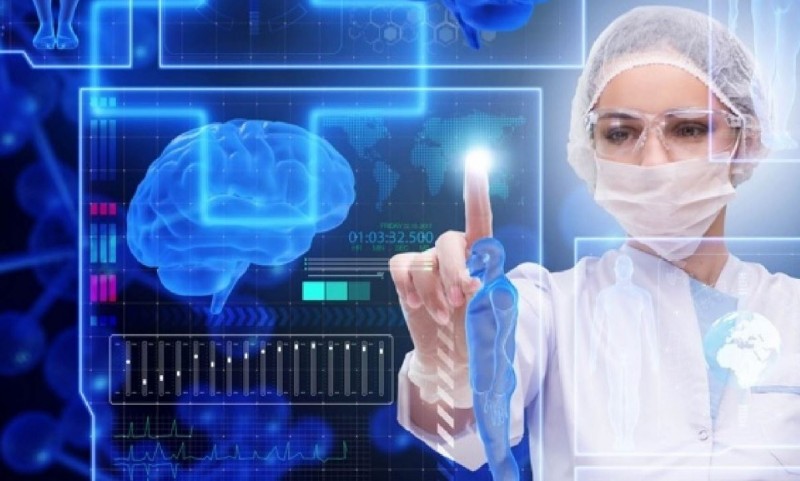
Artificial Intelligence (AI) has rapidly evolved over the years and has become an integral part of our everyday lives. From voice assistants on our smartphones to personalized recommendations on streaming platforms, AI is revolutionizing the way we interact with technology. In this article, we will explore the vast potential of AI and how it is transforming various aspects of our daily routines.
1. Introduction to Artificial Intelligence
Artificial Intelligence refers to the simulation of human intelligence in machines that can perform tasks without explicit programming. It encompasses a range of technologies such as machine learning, natural language processing, and computer vision. AI systems are designed to analyze vast amounts of data, recognize patterns, and make informed decisions, often outperforming human capabilities.
2. AI in Communication and Assistance
AI-powered communication tools and virtual assistants have become ubiquitous. Voice assistants like Siri, Alexa, and Google Assistant leverage AI to understand and respond to human commands, making tasks like setting reminders, answering questions, and controlling smart devices more convenient. Natural language processing enables chatbots to provide instant customer support and streamline interactions on websites and messaging platforms.
3. AI in Healthcare
AI is revolutionizing the healthcare industry by enhancing diagnostics, drug discovery, and patient care. Machine learning algorithms can analyze medical images to detect diseases with high accuracy. AI-powered chatbots assist in preliminary medical assessments and provide personalized health recommendations. Additionally, AI algorithms can mine vast amounts of medical data to identify patterns and predict disease outbreaks, leading to proactive public health measures.
4. AI in Education
Artificial Intelligence is transforming the education sector by personalizing learning experiences and improving student outcomes. Adaptive learning platforms use AI algorithms to analyze student performance data and tailor educational content accordingly. Intelligent tutoring systems provide individualized guidance and feedback to students, helping them grasp complex concepts more effectively. AI also facilitates automated grading and assessment, saving educators valuable time.
5. AI in Transportation
The transportation industry is being revolutionized by AI technologies. Self-driving cars, enabled by AI-powered sensors and machine learning algorithms, have the potential to enhance road safety and reduce traffic congestion. AI is also used for optimizing logistics and route planning, improving efficiency and minimizing delivery times. Additionally, AI-based systems monitor and analyze real-time data to enhance public transportation services and enable smarter traffic management.
6. AI in Entertainment
AI is reshaping the entertainment industry by personalizing content recommendations and creating immersive experiences. Streaming platforms utilize AI algorithms to analyze user preferences and provide tailored recommendations for movies, shows, and music. AI-powered algorithms can generate realistic virtual characters and environments for video games and virtual reality experiences, enhancing user engagement and immersion.
7. AI in Smart Homes
AI plays a crucial role in making homes smarter and more efficient. Connected devices, such as smart thermostats and lighting systems, use AI to learn user preferences and adjust settings accordingly, optimizing energy consumption. Voice-controlled assistants integrate with various home devices, allowing users to control their environment effortlessly. AI also enhances home security systems, utilizing facial recognition and anomaly detection algorithms.
8. AI in Business and Finance
AI technologies are transforming the way businesses operate and make financial decisions. AI-powered analytics tools help organizations gain insights from large datasets, enabling data-driven decision-making. Chatbots provide customer support, automating responses and improving efficiency. AI algorithms can analyze market trends, predict stock prices, and optimize investment portfolios, assisting in financial planning and risk management.
9. AI in Agriculture
AI is revolutionizing agriculture by optimizing crop yield, minimizing resource wastage, and improving sustainability. Drones equipped with AI and computer vision can monitor crop health and identify areas requiring attention. AI algorithms analyze weather patterns and soil conditions to optimize irrigation and fertilization. Furthermore, AI-powered robots can perform labor-intensive tasks such as harvesting, reducing manual labor costs.
10. AI in Environmental Conservation
Artificial Intelligence has the potential to address environmental challenges. AI-based systems can analyze satellite imagery to monitor deforestation, track wildlife populations, and identify endangered species' habitats. Machine learning algorithms help predict and manage natural disasters, enabling proactive measures for mitigation and response. AI also aids in optimizing energy consumption in buildings, contributing to a greener future.
11. Ethical Considerations of AI
As AI becomes more integrated into our lives, ethical considerations become paramount. Issues such as privacy, bias in algorithms, and the impact on employment need to be addressed. It is essential to develop transparent and accountable AI systems that uphold ethical standards and ensure the well-being of individuals and society as a whole.
12. Future Prospects of AI
The future prospects of AI are vast and exciting. Advancements in AI research and technology will likely lead to further breakthroughs in various fields. From advancements in robotics to AI-powered medical advancements, the potential applications are immense. However, it is crucial to continue fostering responsible AI development to harness its benefits while mitigating potential risks.
Conclusion
Artificial Intelligence has unlocked tremendous potential in transforming everyday life across multiple domains. From healthcare and education to transportation and entertainment, AI is revolutionizing how we interact with technology. As AI continues to advance, it is crucial to address ethical considerations and ensure its responsible development for the benefit of society.
CrossBeat out With its New Time Piece